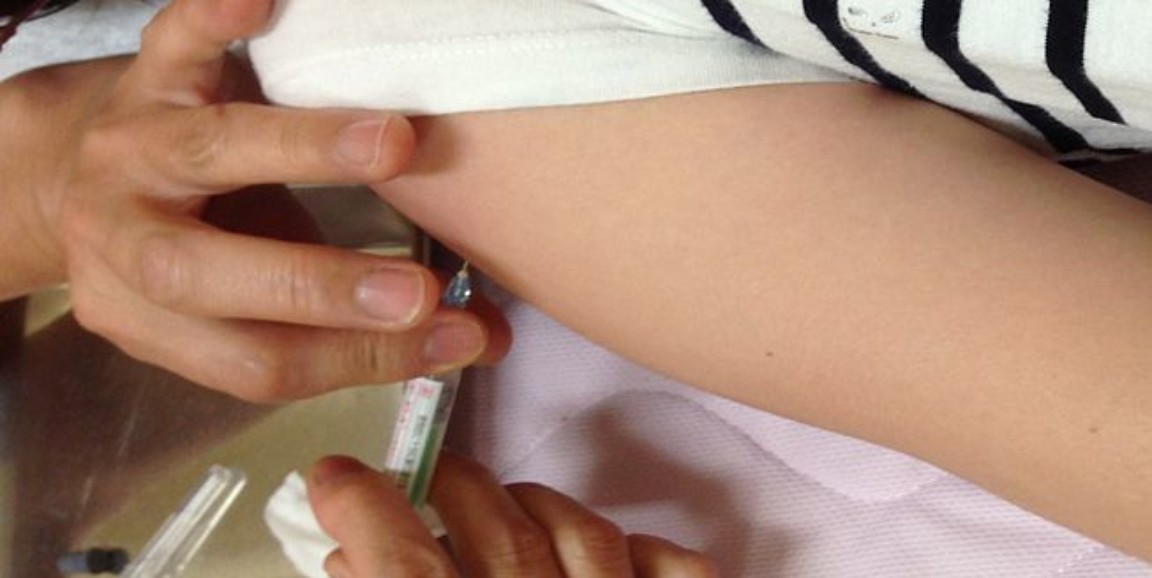There's a good chance that in your lifetime, you'll get HPV, if you don't already have it. Surprisingly, that's not reason to fret. There are literally hundreds of types of HPV, or human papilloma virus, and the vast majority are fairly benign. Most people don't even know they have it -- they get it, their body fights it off, and then it's gone. Like a mild cold of the nether regions.
It's a truth that Lisa Goldthwaite, MD, MPH, clinical assistant professor of obstetrics and gynecology, laid out for a crowd at the recently held Women's Health Forum, an event put on by the Stanford WSDM Center.
Now, you may be thinking: But I got vaccinated -- doesn't that protect me against HPV? Well, yes and no. The vaccine series offers protection against some of the more serious strains known to instigate cervical cancer in women or genital warts. But the vaccine does not cover all strains (again, this isn't grounds for concern, since the majority of the remaining strains are fairly non-consequential.)
"There are a lot of rampant misconceptions about HPV, and what I really want to do is dispel some of those and empower everyone in this room to leave here today and spread the word about the importance of HPV vaccination and cervical cancer screening," Goldthwaite told the audience during her talk.
She went on to spotlight some of the bigger "myths" about HPV and describe why they are in fact incorrect. For example, there's a rumor going around that HPV only affects girls; this, of course, is false. HPV is an equal opportunist: It doesn't discriminate based on gender or anatomy, and both men and women can contract the virus. That's why, Goldthwaite said, it's important for both men and women to get the full HPV vaccination series -- and get it young. Yes, HPV is considered sexually transmitted, but the logic here is to get the vaccine as a child or adolescent, before sexual activity.
Ideally, the range for boys and girls to receive the shot is 11 to 12, but it's safe for them to get the vaccines as early as nine years old. And here's a bonus tip: If a child gets the HPV vaccination early enough, he or she may only need to get two shots, instead of three, as their immune system is able to more efficiently incorporate the vaccine's protection.
Goldthwaite went on to explain that HPV has no treatment. Some strains can be defeated by your body's immune system, but other types, like those that cause warts, are there for the long haul. Yes, you can treat the symptoms, but the virus remains, which is why the vaccine is so critical. This brings up another point, Goldthwaite said: Because there is no treatment for HPV, doctors don't screen for it in and of itself, like they do for other sexually transmitted infections.
"If there isn't a treatment, then there's no use screening for it," she explained. "We do screen for HPV as a precursor to cervical cancer, which is one of the more common cancers known to be associated with HPV." And, she said as she and her colleagues in the field continue to learn more about HPV, they're finding that it can cause oropharyngeal cancer and cancers of the anus in men and women, as well as penile cancer in men.
The bright side, Goldthwaite said, is that we're lucky enough to have an effective prevention method. If the vaccine were to be used to its full effect, about 30,000 cases of cervical cancer could be avoided each year -- which is about the size of a baseball stadium crowd. And, she said, "If we're able to prevent HPV from occurring, that's always going to be better than chasing our tails, trying to treat the symptoms."
Photo by melvil




